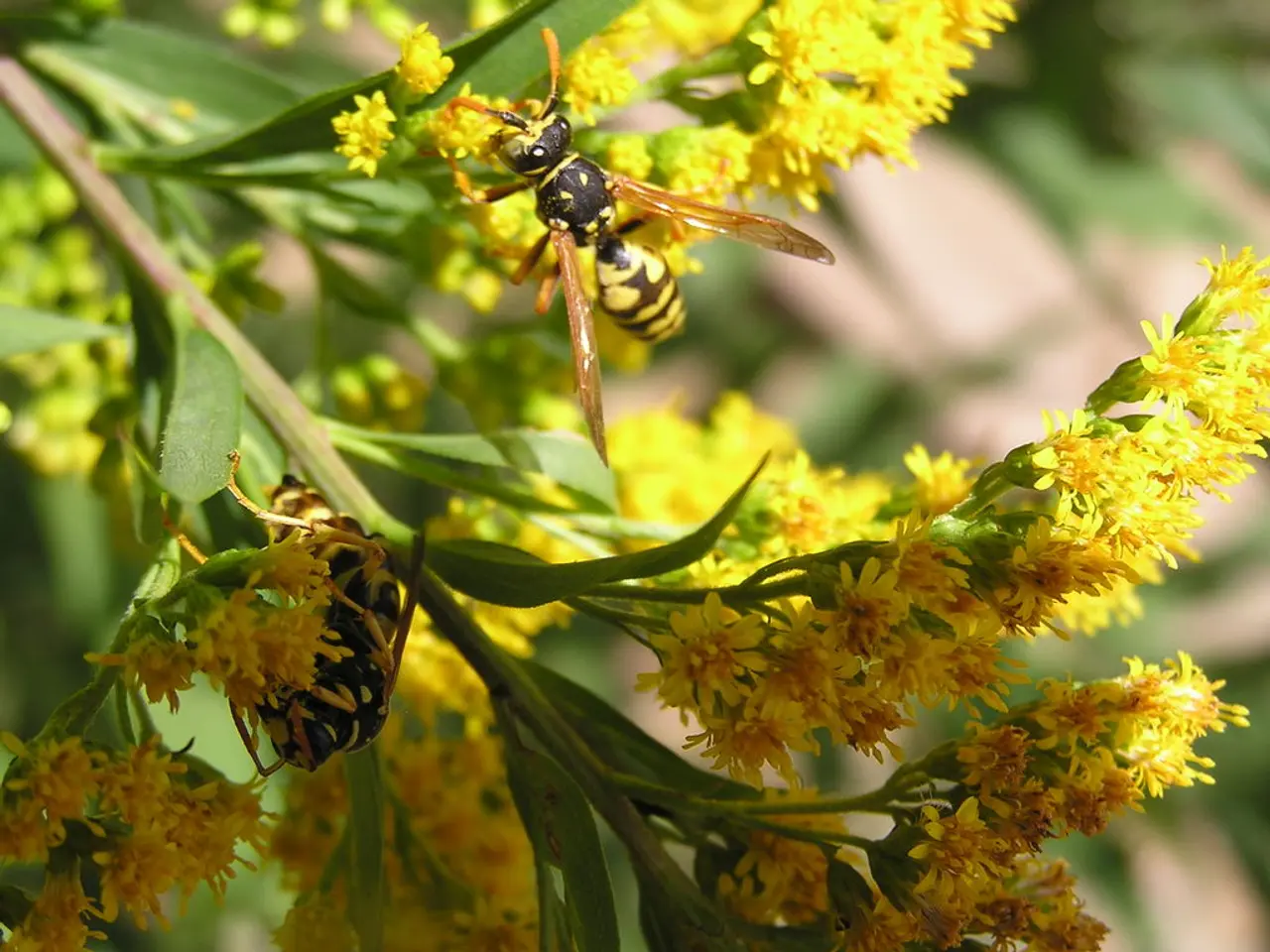Summer Garden Pest Management Methods Utilizing Organic Approaches
In the heart of summer, a lush garden is a sight to behold. However, common pests can quickly turn this paradise into a battlefield. Fear not, as we've compiled effective organic pest control strategies to help you maintain a thriving garden.
First and foremost, a healthy environment is crucial for plants to flourish. Rotating crops each season helps maintain this environment, preventing the buildup of pests and diseases.
When it comes to pests, wilting leaves might be due to tiny creatures sucking the juice from your plants. A magnifying glass can help spot these tiny pests like aphids, which are small, soft-bodied insects that gather in clusters and suck sap from plants.
Organic insecticides are a friendlier alternative to synthetic chemicals. They are environmentally friendly, breaking down naturally, and safe for beneficial insects like bees and ladybugs. Insecticidal soaps, for instance, suffocate pests by drying out their protective coatings. Soap Spray, made from a tablespoon of liquid soap and a quart of water, helps control soft-bodied insects like aphids and spider mites.
Biological controls, such as Bacillus thuringiensis (Bt), are another effective solution. This beneficial bacteria targets pests like tomato hornworms, infecting and killing them without harming plants or beneficial insects.
Hand removal and solarization are cultural controls that can be very effective. Physically removing pests or infested plant parts, or sealing infested plants in plastic bags and exposing them to sun heat at temperatures above 105°F can effectively kill pests without chemicals.
Targeted organic sprays, like Monterey Takedown, contain natural oils that smother aphids and other soft-bodied insects, avoiding broad-spectrum agents that harm all insects.
Companion planting is another powerful tool in the organic gardener's arsenal. Certain flowers and herbs, such as basil, marigold, and nasturtium, can repel insects like aphids and beetles when planted among vegetables. Growing brassicas strategically can confuse or repel flea beetles and cabbage moths, while promoting overall garden biodiversity boosts natural predator populations.
Nasturtiums, for example, attract aphids away from cabbage crops, while garlic keeps aphids and spider mites away from roses. Marigolds deter nematodes and aphids when planted with tomatoes. Basil repels flies and mosquitoes when planted with peppers.
Neem Oil, diluted with water and sprayed on plants, disrupts the life cycle of pests, making it harder for them to thrive. Cayenne Pepper Spray (cayenne pepper, water, and a bit of soap) can deter many common garden pests. Essential oils, like peppermint or tea tree oil, can also deter pests when sprayed around the garden.
Monitoring plant health is key to identifying potential pest problems. Discoloration (yellow or brown spots) on leaves can signal a pest infestation. Examining leaves (both tops and bottoms) can help identify pests or damage. Keeping an eye on pest populations helps ensure a balanced ecosystem in the garden.
In conclusion, success comes from combining strategies that include enhancing soil health and biodiversity, using biological agents, applying organic insecticidal soaps, and practicing cultural controls like hand removal and solarization. Avoid homemade tobacco sprays as they risk spreading Tobacco Mosaic Virus, which damages many garden plants and is difficult to eradicate.
This integrated organic approach manages summer garden pests sustainably, reduces reliance on synthetic chemicals, and preserves beneficial insect populations critical for garden health.
- Maintaining a healthy environment in the garden, achieved through methods like rotating crops each season, aids plants in flourishing.
- Tiny pests like aphids, which can be spotted using a magnifying glass, may cause leaves to wilt by sucking sap from plants.
- Organic insecticides, such as insecticidal soaps, are a more environmentally friendly alternative to synthetic chemicals and target pests without harming beneficial insects like bees and ladybugs.
- Biological controls, like Bacillus thuringiensis (Bt), are beneficial bacteria that target specific pests, infect and kill them, and do not harm plants or beneficial insects.
- Hand removal or sealing infested plant parts in plastic bags and exposing them to sun heat at temperatures above 105°F can effectively kill pests without the use of chemicals.
- Targeted organic sprays, such as Monterey Takedown, contain natural oils that smother pests like aphids, avoiding broad-spectrum agents that harm all insects.
- Companion planting, where certain flowers and herbs are planted among vegetables to repel pests, promotes overall garden biodiversity and boosts natural predator populations.
- Essential oils, like peppermint or tea tree oil, can deter pests when sprayed around the garden, and plants like nasturtiums, garlic, and marigolds can attract or repel pests to protect other crops.





